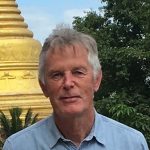
Frontline medics in the firing line,
caring for the injured is now a crime,
shot at in the street tending broken bones,
stopped at gunpoint from treating bullet wounds.
Hospitals vandalised, equipment taken,
desecrated, in violation
of the rules, of humanity, of the law.
But don’t be mistaken, we are keeping the score.1
Ahealthcare system at breaking point.
The violation of medical neutrality in Myanmar continues and since the military coup on 1st February 2021, 97 doctors have been arrested, 10 medics have been killed, 49 hospitals have been raided, and the Covid vaccination programme has been eviscerated.2 The healthcare system is at breaking point.
The violation of medical neutrality in Myanmar continues ….. The healthcare system is at breaking point.
The UK healthcare community response
Health Partnerships between the UK and Myanmar, often funded by UK Aid, have flourished since 2014. Since the coup on February 1st the UK health community, including the Myanmar diaspora of medics here in the UK, have come together to support their colleagues in Myanmar. Representatives from some 30 institutions have met regularly, convened by The Tropical Health and Education Trust (THET).3
THET is a specialist global health organization that educates, trains and supports health workers through partnerships, strengthening health systems and enabling people in low and middle income countries (LMIC) to access essential healthcare. THET established its office in Yangon in 2017, working with Myanmar and UK health institutions to support the strengthening of health systems in Myanmar and is currently championing support for the healthcare community in Myanmar.
Primary Care is not alone and the role call of support convened by THET is truly interdisciplinary and includes; Emergency and Trauma Medicine, Obstetrics and Gynaecology, Paediatrics and Child Health, Oncology, Dermatology, Care of the Elderly, Anaesthesia, Nursing, Midwifery, and Public Health.
The involvement of primary care in Myanmar through the RCGP Quality Improvement project has been previously discussed in the BJGP. The team has now morphed into a support group; Myanmar-UK GP Health Action and continues to meet on zoom regularly with our GP colleagues in Myanmar.
What relevance is empathy to a healthcare system at breaking point?
You might well ask! The term empathy can be ambiguous and problems of definition clutter our understanding. At its core empathy is an act of imagination that moves us from detachment to humanistic engagement and an act of curiosity to find out what matters most. Additional features include recognition of the person(s), not ‘othering’, and connectedness that reduces the distance between us all. Attentiveness to what we are being told is another key feature of empathy. Without a story there is no meaning; facts and information do not constitute meaning. Empathy is incomplete when it does not lead to action, an attempt to help, to provide material aid. These features are woven into the fabric of empathy.4
In the first 100 days of the coup a ‘project empathy’ has emerged …. organically grown from kinships and concern for colleagues.
Flags of Empathy
Three key statements have emerged that are effectively flags of empathy standing firm against the violence that sweeps across Myanmar and for healthcare professionals who brave such dangers to care for the sick and injured. They stand in recognition of what colleagues in Myanmar are experiencing and demonstrate attentiveness to what we are being told.
“As doctors, and representatives of medical professional organisations, we are appalled by the treatment of peaceful protestors, especially our colleagues, and the resulting impact on healthcare. Members of our organisations are currently providing support to healthcare professionals in Myanmar and the reports we have received from them and others paint a damning picture of the actions of the Myanmar security forces”. BMA Statement of Solidarity: Myanmar.5
Words matter and signatories of the full statement of solidarity for Myanmar from the BMA include not only UK professional leaders but also clinicians who have been actively involved in providing support, education, training and capacity-building in Myanmar.
“All health professionals in Myanmar should be able to deliver medical care to anyone in need of their help, without fear, intimidation, attack or arrest…………….We strongly condemn the brutal attacks by Myanmar military and police forces on healthcare workers and medical transport……. All healthcare professionals must have access to use existing emergency healthcare facilities across the country”. Tropical Health Education Trust (THET).6 This statement was developed by Myanmar-UK GP Health Action, endorsed by the Association of Royal Medical Colleges and adopted by THET.
“We are deeply troubled by the multiple reports of the targeting of health professionals including whilst they are attending to injured protestors. Many health workers have been forced into hiding and forced to treat civilians in temporary clinics…… We are concerned for the safety of all health workers – and the people they care for – and are calling on all instruments of the Myanmar government and the wider international community to ensure all nurses and health workers are able to perform their duties free from violence”. Royal College of Nursing. (RCN).7
Imagining and Curiosity.
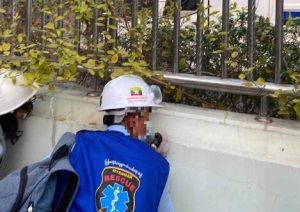
“Our ambulance has been shot at twice,we just had to get out and run. Every morning I say a prayer. I write my blood group, my emergency contact number, my weight and other credentials on my forearm….. There are some patients we see, lying down on the street, who we cannot reach. The military takes them, they may die… I stay in a different place every night. I am afraid of being arrested in night raids… I am doing this for my country’s people, and because I want my children to have a bright future”.
This is only one example of the many testimonies that we are bearing witness to. The delivery of essential healthcare is being prevented. A doctor at Yangon General Hospital has witnessed the army taking away life support machines including ventilators and ECG machines, destroying computers and vandalising the facilities.
Recognition.
Digital Technology is ‘spilling the beans’ on what is happening in Myanmar and the impact on the healthcare system. It has also come to the rescue channelling discussion amongst the healthcare community in the UK, and as securely as possible, with colleagues in Myanmar. Of course connectedness isn’t simply about digital technology, through attentiveness to what we are seeing and hearing from our colleagues in Myanmar the distance between us is reduced and our imagining is carried forward to recognition of the reality of what is being experienced.
Action
It is what we do with our understanding that gives empathy its effectiveness. Four key initiatives have emerged from the UK healthcare community response.
The need for advocacy has surfaced through our conversations with Myanmar medics and resulted in significant contributions to the statements referred to. In addition images and testimonies of the violation of medical neutrality and abuse of human rights have been shared with Amnesty International. Political lobbying at all levels continues including a ‘virtual meeting’ with members of the All Party Political Group on Global Health (APPG) to provide parliamentarians with insight into how the coup is affecting health workers in Myanmar, and the UK health community response. A request for UK Government support for healthcare services in Myanmar has been made in correspondence to the Prime Minister.
Our Myanmar colleagues have asked that we communicate all that is happening to the wider world.
Myanmar medics tell us they need help learning to manage the trauma and emergency care they have no prior experience of and a range of educational initiatives have been developed.
A website has been established to share clinical advice and protocols for Myanmar health workers, the site does not collect any user identifiable data.8 Videos have been developed on the management of ballistics and tear gas injuries, fractures and pain control. First Aid videos for Myanmar in Burmese have been written by UK specialists. Paediatric and Adult Guidelines have been developed and additionally virtual clinical specialist support has been available through daily zoom calls with specialists.
Medics 4 Myanmar is a webinar series developed to cover a series of topics on the care of a variety of traumatic injuries. It targets all healthcare workers on the frontline and is delivered by experts in their field with experience working in remote and hostile environments.9
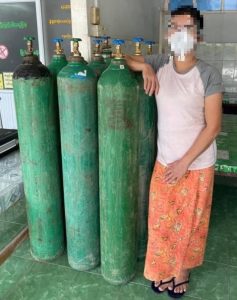
This is an impressive array of initiatives in response to the call for educational support from Myanmar colleagues.
The banking system has collapsed. The junta will identify charity accounts and take the money. Anyone found carrying significant cash will be arrested and the money taken. Funding is needed for equipment such as oxygen concentrators, to support the charity clinics and to pay doctors. A UK based charity Brighter Future Foundation, supporting education and health in Myanmar, was established in 2012.10 A fundraising group has been formed representing the organisations convened by THET to explore individual philanthropy and government funding.
These initiatives of advocacy, communication, education and funding are the framework upon which ‘project empathy’ has clambered. The activity outlined has been undertaken voluntarily and has required little or no budget, but there are constraints to this approach. Following the recent government cuts of £48million in global healthcare funding which included the £7million of funding for health partnerships in Myanmar, the framework for supporting our colleagues in Myanmar is itself fragile.
WHO and the 74th World Health Assembly
In 2021 the World Health Organisation (WHO) is calling for support and action to ensure that health and care workforces are supported, protected, motivated and equipped to deliver safe health care at all times, not only during COVID-19. This is on the agenda for the 74th World Health Assembly ( the forum through which the World Health Organization is governed) which is to be held virtually 24th May to 1st June 2021.
The recent government cuts of £48million in global healthcare funding … included the £7million of funding for health partnerships in Myanmar.
Empathy at the frontline
As clinicians were are aware that empathy is the keystone that connects and supports not only our patients, but ourselves. We must come close enough to recognise our Myanmar colleagues fully in the tragic circumstances they find themselves in and move beyond recognition to material aid.
References
1.“Poem For Myanmar” https://www.youtube.com/watch?v=xQiYUiLb11I
2. Prof Zaw Wai Zoe. Webinar “Responding to the coup in Myanmar: insights from Burmese & UK healthworkers” 26 April 2021
3. THET. Partnerships For Global Health. www.thet.org
4. “Empathy On Screen, An Uncomplicating Role For The Medical Humanities.” Jim Brockbank School of Arts and Humanities, King’s College London 2012.
5. https://www.bma.org.uk/news-and-opinion/statement-of-solidarity-with-myanmar 27 April 2021.
6. THET stands with health professionals in Myanmar. 24 March 2021
7. RCN position on the ongoing situation in Myanmar. 6 May 2021
8. https://www.myanmarclinicalguidance.com/
9. https://www.facebook.com/ExtremeMedicine/videos
All photos from James Brockbank and with the consent of the featured individuals.

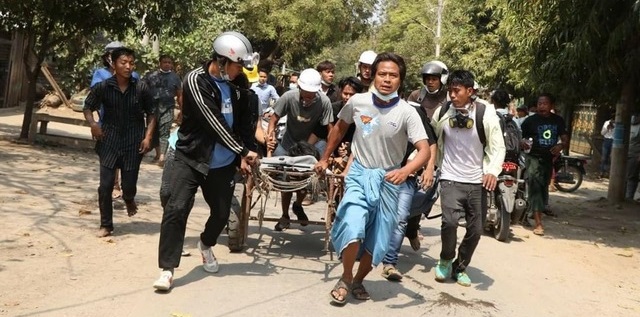
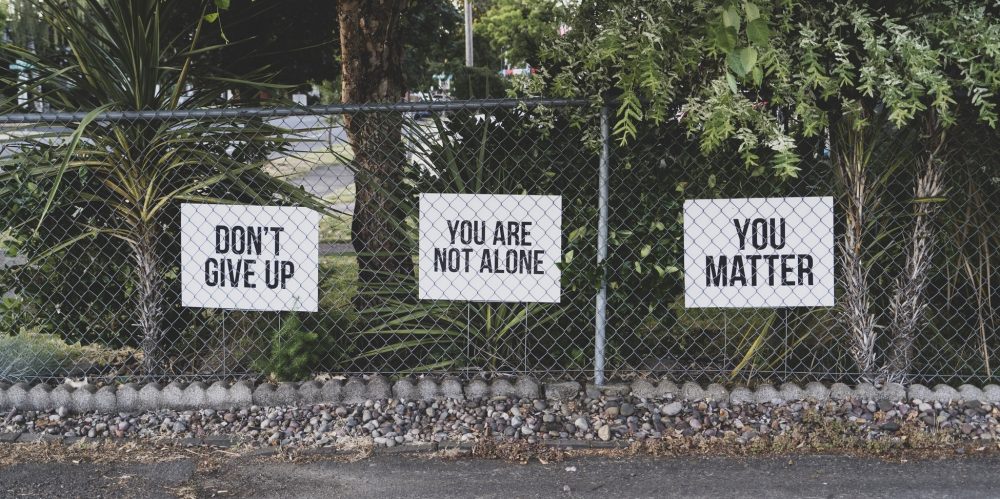
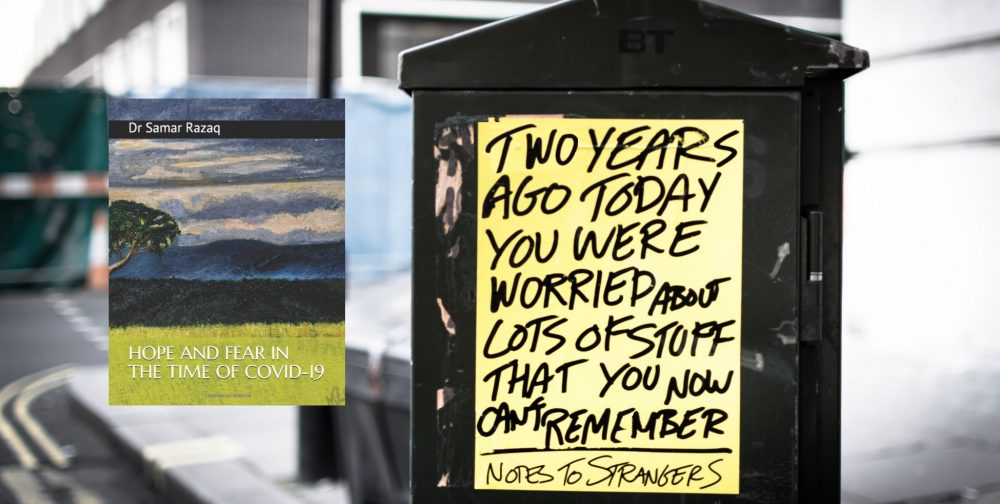


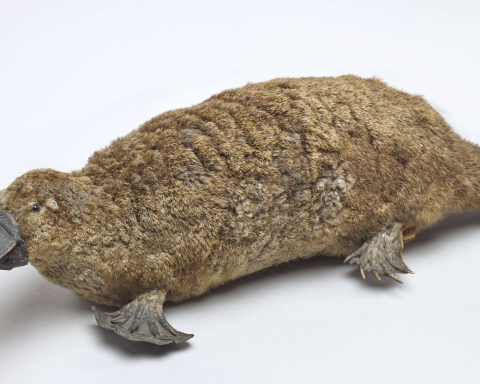
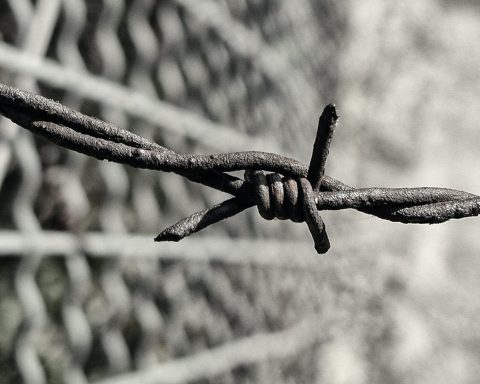
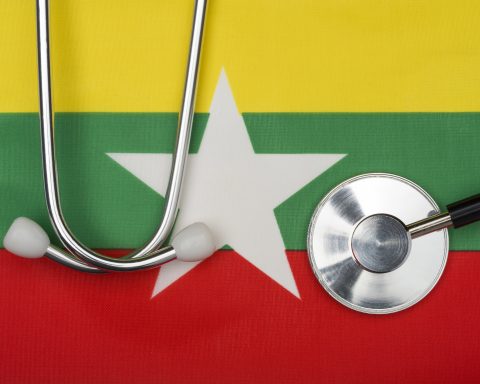
[…] have asked that we communicate all that is happening to the wider world, this has recently included this article from the BJGP and a feature on an episode of the BBC’s Newsnight, which you can find […]
Hay Mar Aung is from Myanmar. She currently works as an Emergency Medicine Registrar in the UK.
My country was trying to cultivate the tree of democracy and freedom when on the 1 February 2021 the military coup, justified by false claims of election fraud, took us back to the dark days of military rule.
Thousands of civilians went on strike and protested all over the country, the initiative for this came from the medical professionals. All doctors are aware of the Hippocratic oath but a growing number of physicians have come to feel that the Hippocratic oath was written long before the advancements in bioethics and is inadequate to address the realities of the modern medical world.1 It makes no mention of such contemporary issues as the ethics of research or a doctor’s societal responsibilities. Doctors in Myanmar still believe in the spirit of the Hippocratic oath but is it still applicable in the current crisis that we face in Myanmar?
In India, in the Charaka Samhita, a sanskrit text on Indian traditional medicine, physicians could refuse to treat people who were not favoured by the king, which shows that oaths were a product of the sociocultural factors of the times they were created.2
Doctors in Myanmar decided to start the strike known as The Civil Disobedience Movement (CDM), and more than 80% of doctors got involved. They are not from political backgrounds but are committed to supporting the next generation in their struggle for democracy and feel unable to obey this illegitimate government.
Some doctors are collaborating with the private sector and non-government organisations to provide essential health care to people. Unfortunately, the military have detained thousands of medical professionals and volunteer staff. Many of the medical staff cannot stay in their homes and have to move from place to place to avoid being arrested by the military.
COVID-19 cases began to rise sharply in early June 2021 and there was a significant increase in the number of COVID-19 related mortalities. This is a catastrophic humanitarian crisis and the people of Myanmar are suffering because of the impact of both COVID-19 and the coup.
Military terrorists are using COVID-19 as a bioweapon, they are blocking the supply of medicines that are used to treat COVID-19, as well as taking away the oxygen supplies of the private and volunteer organisations. On 16 July, one private hospital in Myamar had to shut down their emergency department because the military had cut off the oxygen supply.
The Junta has stated in the newspaper ‘We have enough oxygen’ but this is untrue, they are blocking the supply of oxygen. Two colleagues of mine from medical school died in ITU at one of the government hospitals because of a lack of oxygen.
The people of Myanmar, including my family and relatives, are desperately searching for oxygen. On 13 July Yangon General Hospital was overwhelmed by desperate people needing oxygen treatment but the hospital didn’t have enough of a supply or enough staff. The police fired shots above the crowd to drive them away.
The healthcare system is at breaking point, some medical professionals are hiding in the jungle. Providing primary medical care is a real challenge.
Through webinars doctors in the UK, especially those from Myanmar, are giving moral support to their colleagues in Myanmar, and are helping by sharing their experience for the home management of COVID-19 and some common medical conditions. They are also trying to find ways to supply oxygen concentrators but are concerned that supplies might not reach the needy civilians and that doctors involved would be detained by the military.
Some Myanmar doctors here in the UK have significant feelings of guilt because as medical professionals we do not feel we are able to effectively support colleagues to provide health care for their communities back home.
Doctors in Myanmar are aware that the international community has expressed concern for our country. In supporting the CDM, they are caught between the duty of care they have for the wellbeing of the communities they serve and the need to make a stand for democracy and freedom in our country.
References
1. Tyson P. The Hippocratic oath today. 2001. https://www.pbs.org/wgbh/nova/article/hippocratic-oath-today (accessed 31 August 2021).
2. Indla V, Radhika MS. Hippocratic oath: losing relevance in today’s world? Indian J Psychiatry 2019; 61(Suppl 4): S773–S775.
Read further on the healthcare crisis in Myanmar on BJGP Life
The dream of universal healthcare in Myanmar becomes a nightmare.
Project Empathy. A response to the healthcare crisis in Myanmar.
Myanmar doctors under a military coup in the midst of the pandemic.
Featured images from Dr Jim Brockbank.
Jim Brockbank has retired from general practice. He continues in his role as a GP Appraiser and as an International RCGP Trainer for Myanmar.
Athird wave of COVID-19 is raging across Myanmar, the sick are being left to die in the streets or at home, smoke pours from crematorium chimneys, makeshift morgues are overflowing, two dead are put in one casket such is the shortage of coffins. Given the military’s crackdown on information it is difficult to obtain true figures on COVID-19 cases and deaths, but the evidence is in the streets.
It’s hard to understand the actions of a leadership that attacks doctors and nurses at the peak of a pandemic, but that is what is happening in Myanmar. Medics fear arrest or detention at a time when Myanmar needs them most.
The arrest of Dr Htar Htar Lin, the former head of the vaccination programme in Myanmar, has been previously discussed in this journal.2 In a breathtaking example of conceit and entrapment three doctors were arrested in July after they arrived at an apartment in Yangon to attend a severely breathless man, he proved to be a police officer feigning illness.3 The doctors were from a group who advise virus sufferers over the telephone how to breathe, how to use an oxygen concentrator, and which medicines to buy and how to administer them. Witnesses saw the doctors, handcuffed and bruised, being led away. Their covert clinic was raided, oxygen cylinders and PPE were seized. In addition to seizing oxygen cylinders it is reported that the Junta are blocking factories from re-filling people’s oxygen cylinders.3
In Yangon the security forces opened fire on civilians queuing in line for oxygen, and in Mandalay the military killed one civilian searching for oxygen. There have been reported incidents of patents with COVID-19 being refused admission to hospital.3 In August the number of people killed due to political violence surpassed 1000. Thousands more have been injured, and more than 3300 people remain in detention, including healthcare workers.4
The Junta has centralised all resources for providing medical aid including vaccines, oxygen, and medication. Testing for COVID-19 has plummeted and the vaccination programme has stalled, available data show that only about 6% of the population of 54 million have been fully vaccinated.5
The severe shortage of oxygen, medical equipment, and medication in cities across Myanmar has resulted in people hanging yellow and white flags outside their homes to signal that they need food or medicine, social media has been flooded with pleas for help.6
COVID-19 meets a weak and overwhelmed healthcare system
The crackdown on health care is hitting an already vulnerable system at a critical time. Before the coup Myanmar had 6.7 physicians per 10 000 people in 2018, significantly lower than the global average of 15.6.7 Despite limited resources the Myanmar healthcare system managed to cope with the virus last year, but the coup changed all that.
The National League for Democracy (NLD) recognised the need to improve the healthcare system, which resulted in The New National Health Plan for Myanmar 2017–21 being launched in March 2017 by Aung San Suu Kyi. This is where my own connection and commitment to Myanmar began, which has been previously discussed in this journal.8
In addition to coping with COVID-19 the healthcare system is struggling to provide general health care, and UNICEF has reported that about 600 000 newborn are not receiving essential care, a million children are missing out on routine immunisations, and more than 40 000 children are no longer getting treated for malnutrition.7 Pregnant women and other vulnerable groups face new obstacles in reaching essential care and basic services. Necessary acute, chronic, and preventive care for their communities is an immense challenge for healthcare providers.
Access to health care is particularly challenging in the rural areas and for the population of internally displaced people in the border regions. Over the last 3 months, around 2500 people have arrived in one locality where a group of doctors and nurses have set up medical facilities.
They additionally provided a quarantine centre where new arrivals could be isolated according to World Health Organization guidelines. Over a 4-week period they identified 60 COVID-19 cases and successfully managed three moderate-to-severe cases with oxygen saturation levels <93% in the makeshift COVID-19 inpatient centre. Healthcare staff can get further support and advice on social media from the Ministry of Health in the opposition National Unity Government (NUG), which is run by medics who are part of The Civil Disobedience Movement. COVID-19 test kits, PPE, and medical equipment is provided through donations.
COVID-19 cases are on the increase, there is delay in obtaining medical equipment and medication because of transport problems to these regions, let alone the thievery of the Junta, and a major constraint is that severe COVID-19 cases can’t be transferred to hospital because of lack of staff and people who are frightened to attend.
The call for civil disobedience has been stepped up
The dilemma of civil disobedience at a time of COVID-19 was discussed in this journal recently.9 The launch of a people’s defensive revolution by the president of the NUG on 7 September calling for the people of Myanmar to revolt against the Junta could escalate the conflict to a point where the healthcare system itself is dead and buried.10 A military coup coupled with a stricken healthcare system and a pandemic has already killed thousands, Myanmar could be left with no room to breathe.
The monitoring of how to continue to deliver support for healthcare workers in their commitment to deliver urgent, routine, and COVID-19-related health care to their communities will need to be doubled down. Solutions will need to be found regarding access to health care and to medical training.
Getting down to the facts
In a recent survey of 25 000 people who suffered from COVID-19, the NUG Ministry of Health compared data announced by the State Administration Council (SAC), representing the Junta.11 The death rate was 15% regardless of the place of death, five times higher than the 3.2% reported by SAC, which counted only hospital deaths. Thirty-four per cent of patients with suspected COVID-19 sought care online and 21% from home care services; only 5% received hospital care from government hospitals. Of all the responders, 25% received oxygen treatment. Most of the patients who were critically ill did not receive the necessary hospital care; 73% of deaths occurred at home, 17% of deaths occurred in government hospitals.
Frontline care in a ‘perfect storm’
Imagine trying to provide health care in these circumstances, not surprisingly doctors and nurses are overwhelmed. The reality is that the majority of patients with COVID-19, including people with severe disease, are staying home; they are either self-treating, or relying on care from local doctors and nurses operating in secret. Ducking and diving under cover, medication in short supply, and 73% of COVID-19 deaths occurring in the home — these are extraordinary challenges.
Cultural factors shape health-related beliefs and behaviours. There is a wrong assumption that available medicines for COVID-19 should be given to patients as early as possible, and the concept of ‘right patient at the right time with the right dose’ is stressed. Antivirals and antibody products can be very expensive, and ethical prescribing with clear discussion of benefits is encouraged. Clinicians need to be prepared for managing deterioration and death alongside the acute medical management plan. Severely ill patients need an explanation that hope that their treatment will help needs to be balanced with the fact that they are sick enough to die.
The concept of palliative care is new to doctors and nurses in Myanmar, and it is a step change to accept that palliative care is not ‘giving up’ but is active management for patients not responsive to curative treatment with the goal of achieving the best quality of life. This is a real challenge in the context of shortage of even basic medication including analgesics, anxiolytics, and corticosteroids.
Most nurses, who previously worked in the hierarchical system of government hospitals, have refused to return to work since the coup and many nurses now provide community level health care outside of hospitals in ‘pop-up’ clinics. Many nurses and student nurses find themselves the only healthcare provider in their village, a role for which they were never trained. They work with a lack of supplies and live under the constant fear of arrest, recently two nurses purchasing supplies of medication were arrested (Anonymous, personal communication, 2021).
On the government-run TV stations live arrest warrants are announced for nurses, and those who have been arrested have been paraded ‘confessing’ on prime-time evening television. Yet they continue, supporting their communities and their patients.
Continuing to deliver support for healthcare professionals
In all this doctors and nurses need help, and the UK health community response to the call for educational support from Myanmar colleagues has resulted in an impressive array of initiatives previously discussed in this journal.12
Regular webinars on COVID-19 for GPs are now taking place. Teaching topics include:
drug therapies in the management of COVID-19;
vaccines;
thromboprophylaxis in COVID-19;
impact of COVID-19 on non-communicable diseases (NCDs);
long COVID;
palliative care — end-of-life care, specific to COVID-19; and
roleplay in Burmese.
Recent funding has been approved for ‘strengthening the Myanmar GP service provision during the COVID-19 pandemic’ by the Foreign, Commonwealth and Development Office (FCDO). This will include small group education webinars, strategies to build personal resilience, and practical support for PPE, oxygen, and medication.
Myanmarclinicalguidance.com is a website established by the Royal College of Paediatrics and Child Health (RCPCH), it does not collect any user identifiable data and is low bandwidth for easy access. The site contains clinical guidelines and medical resources selected by experts for use by doctors, nurses, and others in Myanmar, and includes a course titled ‘COVID-19 primary care response in low resource settings’ with the following topics:
cover a guide to public health measures;
triage and management in primary care;
planning for healthcare delivery during the pandemic;
prevent the spread of COVID-19;
NCDs and COVID-19; and
mental health for the community during COVID-19.
The site also links to an increasing number of social-media-friendly videos, with Burmese narration and subtitles that give Burmese clinicians guidance on medical procedures and the general public advice on first aid.
The global health picture
‘Vaccines must be tools of protection, not politics’13
If the coup itself did not prompt concerted international efforts to resolve the humanitarian crisis, the public health implications certainly should. Myanmar borders India, China, and Thailand, and Myanmar is at risk of becoming a COVID-19 super-spreader. The United Nations (UN) special rapporteur for Myanmar has urged the security council to call for a ceasefire. It is reported that a ceasefire has been declared by the Junta for humanitarian aid, but nobody trusts them.
It is hoped that the UN Secretary General will seize the initiative and travel to Myanmar to negotiate a sustained halt to the conflict to allow a third party vaccination programme to be undertaken, in which humanitarian workers will be neither obstructed nor targeted. Engagement of the people of Myanmar will be a challenge in itself and public trust in COVID-19 vaccines and vaccination will be as essential as the effectiveness of the vaccines themselves. Let’s hope the military will accept international assistance to contain the coronavirus.
References
1. Amnesty International. Myanmar: military threatening health workers amid COVID-19 surge. 2021. https://www.amnesty.org.uk/press-releases/myanmar-military-threatening-health-workers-amid-covid-19-surge/ (accessed 16 Sep 2021).
2. Anonymous. Myanmar’s Director For Covid Vaccination Programme tests positive whilst in prison. 2021. https://bjgplife.com/2021/07/20/myanmars-director-for-covid-vaccination-programme-tests-positive-for-covid-whilst-in-prison (accessed 16 Sep 2021).
3. Insecurity Insight. Violence against or obstruction of health care in Myanmar. 2021. http://insecurityinsight.org/wp-content/uploads/2021/08/Violence-Against-Health-Care-in-Myanmar-February-July-2021-August-update.pdf (accessed 16 Sep 2021).
4. United Nations. Daily press briefing by the office of the spokesperson for the Secretary-General. 2021. https://www.un.org/press/en/2021/db210823.doc.htm (accessed 16 Sep 2021).
5. Our World in Data. Coronavirus (COVID-19) vaccinations. Myanmar: share of people vaccinated against COVID-19, Sep 11, 2021. 2021. https://ourworldindata.org/covid-vaccinations (accessed 16 Sep 2021).
6. Ratcliffe R. Myanmar could become Covid ‘super-spreader’ state, says UN expert. The Guardian 2021; 28 Jul: https://www.theguardian.com/world/2021/jul/28/myanmar-could-become-covid-super-spreader-state-says-un-expert (accessed 16 Sep 2021).
7. Gelineau K, Milko V. In Myanmar, the military and police declare war on medics. 2021. https://apnews.com/article/only-on-ap-myanmar-business-science-coronavirus-pandemic-3b4c3e6d711b5eac1209a2c8fd90b2b4 (accessed 16 Sep 2021).
8. Brockbank J. The dream of universal healthcare in Myanmar becomes a nightmare. 2021. https://bjgplife.com/2021/03/29/the-dream-of-universal-healthcare-in-myanmar-becomes-a-nightmare (accessed 16 Sep 2021).
9. Aung HM. The dilemma of civil disobedience at a time of COVID. 2021. https://bjgplife.com/2021/09/03/the-dilemma-of-civil-disobedience-at-a-time-of-covid-19 (accessed 16 Sep 2021).
10. Davies E. Myanmar shadow government calls for revolt against military rule. 2021. https://www.reuters.com/world/asia-pacific/myanmar-shadow-government-unveils-new-strategy-oppose-military-rule-2021-09-07 (accessed 16 Sep 2021).
11. Ministry of Health, National Unity Government. Assessment on COVID-19 during third wave by MOH, NUG. 2021. https://moh.nugmyanmar.org/assessment-covid-third-wave (accessed 16 Sep 2021).
12. Brockbank J. Project Empathy. A response to the healthcare crisis in Myanmar. 2021. https://bjgplife.com/2021/05/28/project-empathy-a-response-to-the-healthcare-crisis-in-myanmar (accessed 16 Sep 2021).
13. @UKUN_NewYork. #Myanmar: vaccines must be tools of protection, not politics. 2021. https://www.twitter.com/ukun_newyork/status/1427674683445481477 (accessed 16 Sep 2021).
Featured photo by Enchax Creative on Unsplash — ‘“Nothing burns like the cold so keep raising your frozen fingers”. The three-finger salute has become a symbol of resistance in protest and in art. Across the milk-tea nations, from Myanmar to Thailand to Hong Kong, the gesture represents global solidarity for democracy, defiance against tyranny, and the fight for freedom.’